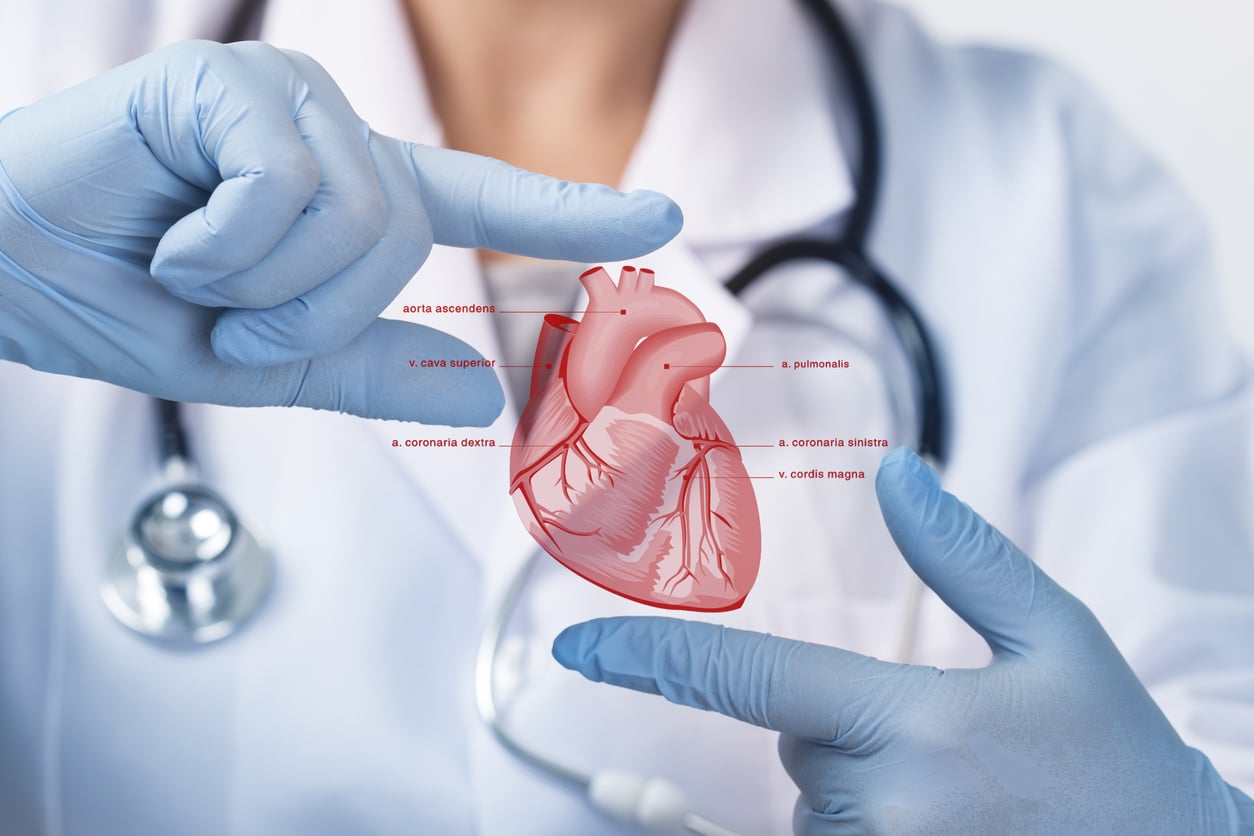How Dr Garcia’s medical insights enhance prevention strategies
Comprehending the Value of Cardiology in Modern Medical Care Providers
Cardiology plays a vital function in contemporary medical care, specifically as heart problem continues to be the leading source of death worldwide. Breakthroughs in diagnostics and treatment have transformed individual treatment, allowing earlier interventions and enhanced outcomes. The change towards preventative cardiology encourages people to handle their health proactively. As modern technology remains to evolve, the combination of innovative solutions might additionally redefine cardiology's effect on public wellness, motivating a better examination of arising patterns and their ramifications.
The Prevalence of Heart Problem and Its Impact on Public Health
Heart illness continues to be the leading reason of death globally, its effect expands much beyond individual people to affect public wellness systems and economic climates. The high prevalence of heart condition places a considerable pressure on medical care sources, necessitating raised funding for treatment, prevention, and recovery programs. Public health and wellness campaigns need to resolve risk aspects such as obesity, smoking cigarettes, and inactive way of lives, which add significantly to the climbing occurrence of heart conditions.Moreover, the economic concern connected with heart disease is immense, including not just direct medical expenses yet additionally indirect expenses associated with lost efficiency and early death. Communities deal with obstacles in handling these prices, commonly bring about disparities in healthcare gain access to and results. As the populace ages and lifestyle-related risks remain to intensify, the seriousness for reliable cardiology treatments comes to be paramount. Consequently, attending to heart condition is not just an issue of specific wellness yet additionally an important public wellness top priority.
Breakthroughs in Heart Diagnostics and Imaging Techniques
Recent developments in cardiac diagnostics and imaging methods have transformed the field of cardiology, enhancing the capacity to identify and check heart problem. Methods such as cardiac MRI, CT angiography, and echocardiography have come to be significantly advanced, providing thorough photos of heart structures and features. These methods permit the early recognition of problems like coronary artery disease, heart failing, and valvular disorders.Moreover, innovations in non-invasive diagnostics, such as wearable modern technology and remote tracking gadgets, have actually empowered people and health care carriers. These tools facilitate real-time monitoring of heart rhythms and other necessary indications, leading to prompt interventions. Furthermore, artificial knowledge is being incorporated into imaging evaluation, boosting precision and effectiveness in medical diagnosis.
Advancements in Treatment Choices for Heart Issues
Current developments in cardiology have led to considerable innovations in treatment alternatives for heart problems. These consist of advanced surgical strategies that enhance procedural end results and arising medications that provide brand-new methods for therapy. As the field advances, these innovations play a crucial duty in improving client treatment and end results.
Advanced Surgical Techniques
Innovations in surgical methods have actually changed the landscape of cardiology, supplying new expect individuals with heart disease. Minimally invasive procedures, such as catheter-based interventions, have actually considerably lowered recovery times and healthcare facility keeps. Strategies like robotic-assisted surgery enhance precision, enabling specialists to navigate intricate physiological structures with greater accuracy. In addition, advancements in imaging technology help with real-time visualization during procedures, improving outcomes. Transcatheter aortic valve replacement (TAVR) exemplifies an advancement in dealing with aortic constriction, making it possible for shutoff substitute without open-heart surgical treatment. Furthermore, hybrid methods that combine medical and catheter-based techniques offer tailored solutions for numerous heart concerns. These sophisticated surgical techniques not just improve client safety and security however also expand treatment options, emphasizing the vital duty of technology in contemporary cardiology practices.
Arising Medicines and Therapies
As the landscape of cardiology proceeds to progress, emerging drugs and therapies play a pivotal function in boosting therapy options for heart disease. Advancements such as novel anticoagulants and progressed lipid-lowering representatives have changed the monitoring of heart diseases, significantly lowering individual morbidity and death. Furthermore, the growth of gene therapies and regenerative medicine uses promising opportunities for dealing with conditions formerly deemed irreversible. Professional trials are consistently exposing the efficiency of these therapies, pushing the borders of traditional treatments. In addition, the integration of digital wellness technologies assists in tailored medicine, enabling for tailored therapy strategies based on genetic and way of life variables. Collectively, these advancements highlight the dynamic nature of cardiology, enhancing individual end results and redefining requirements of treatment in modern health care.
The Function of Preventive Cardiology in Person Treatment
Preventive cardiology plays a necessary function in patient care by focusing on the recognition of threat variables that add to heart problem. Through lifestyle modification strategies and early discovery strategies, doctor can successfully minimize the occurrence of cardiovascular events - Cardiology. This aggressive technique not just enhances client results yet additionally advertises long-lasting health
Risk Variable Recognition
While cardio diseases continue to be a leading reason for morbidity and mortality worldwide, effective risk variable recognition offers as a foundation of precautionary cardiology. Identifying threat aspects such as hypertension, family, hyperlipidemia, and diabetes mellitus background is necessary for early intervention. Medical care experts utilize various screening approaches to examine these aspects, enabling tailored preventative actions. Additionally, understanding a client's way of life options, such as smoking cigarettes and physical lack of exercise, additionally informs danger assessments. This thorough examination enables medical professionals to establish personalized care strategies focused on mitigating dangers. By focusing on risk variable identification, medical care systems can boost individual end results and decrease the general burden of heart diseases, eventually adding to boosted public health methods and source allocation.
Way Of Life Adjustment Techniques
A multitude of research studies highlights the vital duty of way of life modification strategies in lowering heart disease risk. These methods include dietary modifications, increased physical activity, cigarette smoking cessation, and weight monitoring. By taking on a heart-healthy diet regimen abundant in fruits, vegetables, whole grains, and lean healthy proteins, individuals can reduce cholesterol degrees and high blood pressure. Routine physical task enhances the heart and enhances general cardio health and wellness. Furthermore, stopping smoking cigarettes greatly reduces the threat of heart condition and improves healing rates for those with current conditions. Weight management further adds to cardio health and wellness by mitigating other threat variables such as diabetic issues and hypertension. Carrying out these way of living transforms not just advertises private wellness but additionally works as a foundation of preventive cardiology in patient treatment.
Early Detection Strategies
Way of life modifications significantly add to minimizing heart disease threats, yet they are most reliable when coupled with very early discovery techniques. Precautionary cardiology highlights the significance of identifying potential heart concerns before they escalate into severe problems. Methods such as blood pressure surveillance, cholesterol screening, and progressed imaging technologies like echocardiograms play crucial functions in examining cardio health and wellness. Biomarkers and genetic screening additionally improve the precision of very early detection, enabling tailored preventive strategies. Regular heart danger assessments empower healthcare companies to intervene proactively, possibly stopping cardiovascular disease and strokes (Dr Garcia). By incorporating these early discovery methods into routine treatment, clients can profit from prompt way of life interventions and targeted therapies, eventually improving and improving results high quality of life
Integrating Technology Into Cardiology Practices
As developments in innovation proceed to improve various fields, the combination of ingenious tools and systems into cardiology techniques has actually come to be vital for boosting individual treatment and results. Telemedicine systems allow cardiologists to check patients remotely, enhancing accessibility to care while reducing the concern on medical care centers. Wearable devices, such as smartwatches, make it possible for continuous heart rate surveillance, notifying both doctors and individuals to prospective concerns in real-time. Furthermore, synthetic knowledge (AI) is being made use of to analyze substantial quantities of cardiac information, helping in very early diagnosis read review and tailored therapy plans. Advanced imaging strategies, including 3D echocardiography, enhance visualization of heart structures, bring about extra specific treatments. Digital health and wellness records (EHRs) streamline person details management, guaranteeing that Cardiologist near me cardiologists have immediate accessibility to essential information. Together, these technical innovations are transforming cardiology, advertising positive monitoring and boosted health end results for patients with cardiovascular problems.
The Importance of Patient Education and Involvement
Person education and learning and involvement play an essential function in the management of cardiovascular wellness. By furnishing clients with knowledge concerning their problems, therapy alternatives, and way of living modifications, doctor equip individuals to take an active role in their treatment. This aggressive method can lead to enhanced adherence to recommended drugs, dietary modifications, and workout regimens, inevitably minimizing the threat of complications.Engagement additionally promotes a solid patient-provider partnership, encouraging open interaction and trust fund. When individuals feel informed and included, they are much more most likely to voice problems and ask inquiries, which can lead to much better scientific outcomes. Furthermore, instructional resources, such as workshops or digital systems, can improve understanding and promote self-management techniques. In general, focusing on person education and engagement is necessary for enhancing cardio health and wellness, improving high quality of life, and minimizing health care prices connected with heart diseases.
Future Fads in Cardiology and Their Possible Influence

Regularly Asked Concerns
What Lifestyle Modifications Can Decrease Heart Problem Danger?
The current concern addresses way of life modifications that can greatly lower heart problem risk. Cardiologist near me. Taking on a well balanced diet regimen, involving in normal exercise, keeping a healthy weight, taking care of tension, and preventing tobacco can significantly improve cardiovascular health
Exactly How Can I Recognize Early Indications of Heart Issues?
Recognizing early signs of heart troubles involves surveillance signs and symptoms such as upper body pain, lack of breath, exhaustion, and uneven heart beat. Prompt awareness of these indications can trigger required medical analysis and intervention for far better results.
What Are the Distinctions In Between Cardiologists and Heart Surgeons?
The distinctions between cardiologists and cardiac specialists exist in their duties; cardiologists largely detect and manage heart disease with non-invasive methods, while cardiac cosmetic surgeons execute operations to correct architectural heart problems. Each plays a vital, unique role.

Exactly how Usually Should I Get My Heart Health And Wellness Checked?
The regularity of heart health checks differs based upon specific risk factors. Normally, adults should go through evaluations each to two years, while those with present conditions might need more frequent evaluations as recommended by medical care experts.
What Duty Does Genes Play in Heart Condition Threat?
Genetics significantly influences heart condition risk, with domestic patterns suggesting acquired conditions. Details genes can incline individuals to hypertension, cholesterol concerns, and other cardio problems, highlighting the relevance of genetic testing in assessing heart wellness. Heart disease continues to be the leading cause of fatality around the world, its effect prolongs far past individual people to influence public health systems and economic climates. Public health and wellness efforts have to attend to threat elements such as weight problems, cigarette smoking, and sedentary way of livings, which contribute considerably to the climbing incidence of heart conditions.Moreover, the economic burden connected with heart condition is tremendous, encompassing not only straight clinical prices but also indirect costs connected to shed efficiency and early death. Preventive cardiology plays a necessary duty in patient care by focusing on the identification of danger aspects that add to directory heart condition. Fabricated knowledge (AI) and machine knowing are improving diagnostics and individual tracking, making it possible for very early discovery of heart conditions. The distinctions in between cardiologists and heart doctors exist in their functions; cardiologists mostly take care of and detect heart problems with non-invasive techniques, while cardiac cosmetic surgeons carry out surgical procedures to deal with architectural heart concerns.